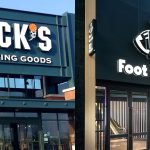KMD Brands, the parent of Kathmandu, Rip Curl and Oboz, said it expects total sales for the year ending July 31 to be in the range of $955 million to $965 million, representing a gain of 4 percent compared with $922.8 million a year ago.
Underlying EBITDA on an adjusted basis is expected to be in the range of $88 million to $94 million, down from adjusted EBITDA of $113.3 million a year ago. Adjusted earnings exclude the impact of IFRS 16, recent IFRIC interpretations relating to software as a service arrangement and one-off non-cash items.
Underlying EBIT is projected to be in the range of $53 million to $59 million, down from the adjusted EBIT of $83.8 million a year ago.
As previously announced, the year-on-year impact of COVID on the first half EBITDA was approximately $35 million.
KDM Brands said trading conditions have improved in the second half; however, COVID continued to impact footfall, particularly in the third quarter, and caused sporadic store closures due to staff availability.
Same-store sales year-to-date (YTD) remain positive for Rip Curl and Kathmandu, despite the significant COVID impacts on retail. YTD direct-to-consumer same-store sales, including online, for the 49 full weeks to July 10, 2022 for Rip Curl, +2.1 percent; and Kathmandu, +7.3 percent.
KMD Brands said Kathmandu, with stores in New Zealand and Australia, saw a record performance in its key winter promotional period while Rip Curl continues to trade strongly across retail and wholesale channels.
Oboz suppliers have resumed production following COVID-related factory closures, and inventory levels are recovering. Wholesale demand for Oboz products remains above pre-COVID levels.
Group CEO and Managing Director Michael Daly said: “Rip Curl’s wholesale and direct-to-consumer retail channels continue to perform well. Wholesale order books are above prior year levels as we look forward to next year.
“Pleasingly, Kathmandu has experienced a record winter promotional period in Australia. Second-half gross margins are well above last year due to a combination of currency benefits and updated promotional execution. Trading in New Zealand was weaker than in Australia, reflecting lower growth in consumer footfall and revenues, offset by improved gross margins reflecting the deliberate strategy to carefully moderate the historic “high-low” pricing model. While Q3 was impacted by the ongoing COVID outbreak in both counties, Q4 profitability is expected to be above pre-COVID levels absent of any new government restrictions.
“Oboz is recovering from the three-month COVID closure of Vietnam factories in the first half, compounded by shipping congestion and international freight delays. Oboz has received approximately two hundred thousand pairs of footwear in the past two months as suppliers resumed full production. Additional supply has been secured for future seasons to meet order book demand.
“Inventory levels are forecast to be above last year, reflecting decisions taken in the light of ongoing supply chain disruption to accelerate orders to meet forward wholesale orders and expected retail demand. Inventory quality remains high, with depth in carry forward styles and lower clearance levels year on year.
“The Group continues to target our long-term objective of 0.5x net debt to underlying EBITDA.
“We continue to deliver on our objectives to grow KMD into the leading family of global outdoor brands by elevating digital infrastructure and the consumer experience, leveraging operational excellence, and being a leader in ESG. KMD is well-positioned for growth as travel rebounds globally, and COVID impacts on consumer behavior and international supply chains ease.”
Photo courtesy Oboz














